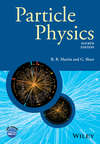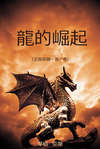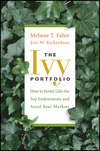Kitabı oku: «The Octopus : A Story of California», sayfa 23
And that was all. Until now no single real thing had occurred, nothing that Vanamee could reduce to terms of actuality, nothing he could put into words. The manifestation, when not recognisable to that strange sixth sense of his, appealed only to the most refined, the most delicate perception of eye and ear. It was all ephemeral, filmy, dreamy, the mystic forming of the Vision—the invisible developing a concrete nucleus, the starlight coagulating, the radiance of the flowers thickening to something actual; perfume, the most delicious fragrance, becoming a tangible presence.
But into that garden the serpent intruded. Though cradled in the slow rhythm of the dream, lulled by this beauty of a summer’s night, heavy with the scent of flowers, the silence broken only by a rippling fountain, the darkness illuminated by a world of radiant blossoms, Vanamee could not forget the tragedy of the Other; that terror of many years ago,—that prowler of the night, that strange, fearful figure with the unseen face, swooping in there from out the darkness, gone in an instant, yet leaving behind the trail and trace of death and of pollution.
Never had Vanamee seen this more clearly than when leaving Presley on the stock range of Los Muertos, he had come across to the Mission garden by way of the Quien Sabe ranch.
It was the same night in which Annixter out-watched the stars, coming, at last, to himself.
As the hours passed, the two men, far apart, ignoring each other, waited for the Manifestation,—Annixter on the ranch, Vanamee in the garden.
Prone upon his face, under the pear trees, his forehead buried in the hollow of his arm, Vanamee lay motionless. For the last time, raising his head, he sent his voiceless cry out into the night across the multi-coloured levels of the little valley, calling upon the miracle, summoning the darkness to give Angele back to him, resigning himself to the hallucination. He bowed his head upon his arm again and waited. The minutes passed. The fountain dripped steadily. Over the hills a haze of saffron light foretold the rising of the full moon. Nothing stirred. The silence was profound.
Then, abruptly, Vanamee’s right hand shut tight upon his wrist. There—there it was. It began again, his invocation was answered. Far off there, the ripple formed again upon the still, black pool of the night. No sound, no sight; vibration merely, appreciable by some sublimated faculty of the mind as yet unnamed. Rigid, his nerves taut, motionless, prone on the ground, he waited.
It advanced with infinite slowness. Now it passed through the beds of violets, now through the mignonette. A moment later, and he knew it stood among the white iris. Then it left those behind. It was in the splendour of the red roses and carnations. It passed like a moving star into the superb abundance, the imperial opulence of the royal lilies. It was advancing slowly, but there was no pause. He held his breath, not daring to raise his head. It passed beyond the limits of the Seed ranch, and entered the shade at the foot of the hill below him. Would it come farther than this? Here it had always stopped hitherto, stopped for a moment, and then, in spite of his efforts, had slipped from his grasp and faded back into the night. But now he wondered if he had been willing to put forth his utmost strength, after all. Had there not always been an element of dread in the thought of beholding the mystery face to face? Had he not even allowed the Vision to dissolve, the Answer to recede into the obscurity whence it came?
But never a night had been so beautiful as this. It was the full period of the spring. The air was a veritable caress. The infinite repose of the little garden, sleeping under the night, was delicious beyond expression. It was a tiny corner of the world, shut off, discreet, distilling romance, a garden of dreams, of enchantments.
Below, in the little valley, the resplendent colourations of the million flowers, roses, lilies, hyacinths, carnations, violets, glowed like incandescence in the golden light of the rising moon. The air was thick with the perfume, heavy with it, clogged with it. The sweetness filled the very mouth. The throat choked with it. Overhead wheeled the illimitable procession of the constellations. Underfoot, the earth was asleep. The very flowers were dreaming. A cathedral hush overlay all the land, and a sense of benediction brooded low,—a divine kindliness manifesting itself in beauty, in peace, in absolute repose.
It was a time for visions. It was the hour when dreams come true, and lying deep in the grasses beneath the pear trees, Vanamee, dizzied with mysticism, reaching up and out toward the supernatural, felt, as it were, his mind begin to rise upward from out his body. He passed into a state of being the like of which he had not known before. He felt that his imagination was reshaping itself, preparing to receive an impression never experienced until now. His body felt light to him, then it dwindled, vanished. He saw with new eyes, heard with new ears, felt with a new heart.
“Come to me,” he murmured.
Then slowly he felt the advance of the Vision. It was approaching. Every instant it drew gradually nearer. At last, he was to see. It had left the shadow at the base of the hill; it was on the hill itself. Slowly, steadily, it ascended the slope; just below him there, he heard a faint stirring. The grasses rustled under the touch of a foot. The leaves of the bushes murmured, as a hand brushed against them; a slender twig creaked. The sounds of approach were more distinct. They came nearer. They reached the top of the hill. They were within whispering distance.
Vanamee, trembling, kept his head buried in his arm. The sounds, at length, paused definitely. The Vision could come no nearer. He raised his head and looked. The moon had risen. Its great shield of gold stood over the eastern horizon. Within six feet of Vanamee, clear and distinct, against the disk of the moon, stood the figure of a young girl. She was dressed in a gown of scarlet silk, with flowing sleeves, such as Japanese wear, embroidered with flowers and figures of birds worked in gold threads. On either side of her face, making three-cornered her round, white forehead, hung the soft masses of her hair of gold. Her hands hung limply at her sides. But from between her parted lips—lips of almost an Egyptian fulness—her breath came slow and regular, and her eyes, heavy lidded, slanting upwards toward the temples, perplexing, oriental, were closed. She was asleep.
From out this life of flowers, this world of colour, this atmosphere oppressive with perfume, this darkness clogged and cloyed, and thickened with sweet odours, she came to him. She came to him from out of the flowers, the smell of the roses in her hair of gold, the aroma and the imperial red of the carnations in her lips, the whiteness of the lilies, the perfume of the lilies, and the lilies’ slender, balancing grace in her neck. Her hands disengaged the scent of the heliotrope. The folds of her scarlet gown gave off the enervating smell of poppies. Her feet were redolent of hyacinth. She stood before him, a Vision realised—a dream come true. She emerged from out the invisible. He beheld her, a figure of gold and pale vermilion, redolent of perfume, poised motionless in the faint saffron sheen of the new-risen moon. She, a creation of sleep, was herself asleep. She, a dream, was herself dreaming.
Called forth from out the darkness, from the grip of the earth, the embrace of the grave, from out the memory of corruption, she rose into light and life, divinely pure. Across that white forehead was no smudge, no trace of an earthly pollution—no mark of a terrestrial dishonour. He saw in her the same beauty of untainted innocence he had known in his youth. Years had made no difference with her. She was still young. It was the old purity that returned, the deathless beauty, the ever-renascent life, the eternal consecrated and immortal youth. For a few seconds, she stood there before him, and he, upon the ground at her feet, looked up at her, spellbound. Then, slowly she withdrew. Still asleep, her eyelids closed, she turned from him, descending the slope. She was gone.
Vanamee started up, coming, as it were, to himself, looking wildly about him. Sarria was there.
“I saw her,” said the priest. “It was Angele, the little girl, your Angele’s daughter. She is like her mother.”
But Vanamee scarcely heard. He walked as if in a trance, pushing by Sarria, going forth from the garden. Angele or Angele’s daughter, it was all one with him. It was She. Death was overcome. The grave vanquished. Life, ever-renewed, alone existed. Time was naught; change was naught; all things were immortal but evil; all things eternal but grief.
Suddenly, the dawn came; the east burned roseate toward the zenith. Vanamee walked on, he knew not where. The dawn grew brighter. At length, he paused upon the crest of a hill overlooking the ranchos, and cast his eye below him to the southward. Then, suddenly flinging up his arms, he uttered a great cry.
There it was. The Wheat! The Wheat! In the night it had come up. It was there, everywhere, from margin to margin of the horizon. The earth, long empty, teemed with green life. Once more the pendulum of the seasons swung in its mighty arc, from death back to life. Life out of death, eternity rising from out dissolution. There was the lesson. Angele was not the symbol, but the PROOF of immortality. The seed dying, rotting and corrupting in the earth; rising again in life unconquerable, and in immaculate purity,—Angele dying as she gave birth to her little daughter, life springing from her death,—the pure, unconquerable, coming forth from the defiled. Why had he not had the knowledge of God? Thou fool, that which thou sowest is not quickened except it die. So the seed had died. So died Angele. And that which thou sowest, thou sowest not that body that shall be, but bare grain. It may chance of wheat, or of some other grain. The wheat called forth from out the darkness, from out the grip of the earth, of the grave, from out corruption, rose triumphant into light and life. So Angele, so life, so also the resurrection of the dead. It is sown in corruption. It is raised in incorruption. It is sown in dishonour. It is raised in glory. It is sown in weakness. It is raised in power. Death was swallowed up in Victory.
The sun rose. The night was over. The glory of the terrestrial was one, and the glory of the celestial was another. Then, as the glory of sun banished the lesser glory of moon and stars, Vanamee, from his mountain top, beholding the eternal green life of the growing Wheat, bursting its bonds, and in his heart exulting in his triumph over the grave, flung out his arms with a mighty shout:
“Oh, Death, where is thy sting? Oh, Grave, where is thy victory?”
CHAPTER IV
Presley’s Socialistic poem, “The Toilers,” had an enormous success. The editor of the Sunday supplement of the San Francisco paper to which it was sent, printed it in Gothic type, with a scare-head title so decorative as to be almost illegible, and furthermore caused the poem to be illustrated by one of the paper’s staff artists in a most impressive fashion. The whole affair occupied an entire page. Thus advertised, the poem attracted attention. It was promptly copied in New York, Boston, and Chicago papers. It was discussed, attacked, defended, eulogised, ridiculed. It was praised with the most fulsome adulation; assailed with the most violent condemnation. Editorials were written upon it. Special articles, in literary pamphlets, dissected its rhetoric and prosody. The phrases were quoted,—were used as texts for revolutionary sermons, reactionary speeches. It was parodied; it was distorted so as to read as an advertisement for patented cereals and infants’ foods. Finally, the editor of an enterprising monthly magazine reprinted the poem, supplementing it by a photograph and biography of Presley himself.
Presley was stunned, bewildered. He began to wonder at himself. Was he actually the “greatest American poet since Bryant”? He had had no thought of fame while composing “The Toilers.” He had only been moved to his heart’s foundations,—thoroughly in earnest, seeing clearly,—and had addressed himself to the poem’s composition in a happy moment when words came easily to him, and the elaboration of fine sentences was not difficult. Was it thus fame was achieved? For a while he was tempted to cross the continent and go to New York and there come unto his own, enjoying the triumph that awaited him. But soon he denied himself this cheap reward. Now he was too much in earnest. He wanted to help his People, the community in which he lived—the little world of the San Joaquin, at grapples with the Railroad. The struggle had found its poet. He told himself that his place was here. Only the words of the manager of a lecture bureau troubled him for a moment. To range the entire nation, telling all his countrymen of the drama that was working itself out on this fringe of the continent, this ignored and distant Pacific Coast, rousing their interest and stirring them up to action—appealed to him. It might do great good. To devote himself to “the Cause,” accepting no penny of remuneration; to give his life to loosing the grip of the iron-hearted monster of steel and steam would be beyond question heroic. Other States than California had their grievances. All over the country the family of cyclops was growing. He would declare himself the champion of the People in their opposition to the Trust. He would be an apostle, a prophet, a martyr of Freedom.
But Presley was essentially a dreamer, not a man of affairs. He hesitated to act at this precise psychological moment, striking while the iron was yet hot, and while he hesitated, other affairs near at hand began to absorb his attention.
One night, about an hour after he had gone to bed, he was awakened by the sound of voices on the porch of the ranch house, and, descending, found Mrs. Dyke there with Sidney. The ex-engineer’s mother was talking to Magnus and Harran, and crying as she talked. It seemed that Dyke was missing. He had gone into town early that afternoon with the wagon and team, and was to have been home for supper. By now it was ten o’clock and there was no news of him. Mrs. Dyke told how she first had gone to Quien Sabe, intending to telephone from there to Bonneville, but Annixter was in San Francisco, and in his absence the house was locked up, and the over-seer, who had a duplicate key, was himself in Bonneville. She had telegraphed three times from Guadalajara to Bonneville for news of her son, but without result. Then, at last, tortured with anxiety, she had gone to Hooven’s, taking Sidney with her, and had prevailed upon “Bismarck” to hitch up and drive her across Los Muertos to the Governor’s, to beg him to telephone into Bonneville, to know what had become of Dyke.
While Harran rang up Central in town, Mrs. Dyke told Presley and Magnus of the lamentable change in Dyke.
“They have broken my son’s spirit, Mr. Derrick,” she said. “If you were only there to see. Hour after hour, he sits on the porch with his hands lying open in his lap, looking at them without a word. He won’t look me in the face any more, and he don’t sleep. Night after night, he has walked the floor until morning. And he will go on that way for days together, very silent, without a word, and sitting still in his chair, and then, all of a sudden, he will break out—oh, Mr. Derrick, it is terrible—into an awful rage, cursing, swearing, grinding his teeth, his hands clenched over his head, stamping so that the house shakes, and saying that if S. Behrman don’t give him back his money, he will kill him with his two hands. But that isn’t the worst, Mr. Derrick. He goes to Mr. Caraher’s saloon now, and stays there for hours, and listens to Mr. Caraher. There is something on my son’s mind; I know there is—something that he and Mr. Caraher have talked over together, and I can’t find out what it is. Mr. Caraher is a bad man, and my son has fallen under his influence.” The tears filled her eyes. Bravely, she turned to hide them, turning away to take Sidney in her arms, putting her head upon the little girl’s shoulder.
“I—I haven’t broken down before, Mr. Derrick,” she said, “but after we have been so happy in our little house, just us three—and the future seemed so bright—oh, God will punish the gentlemen who own the railroad for being so hard and cruel.”
Harran came out on the porch, from the telephone, and she interrupted herself, fixing her eyes eagerly upon him.
“I think it is all right, Mrs. Dyke,” he said, reassuringly. “We know where he is, I believe. You and the little tad stay here, and Hooven and I will go after him.”
About two hours later, Harran brought Dyke back to Los Muertos in Hooven’s wagon. He had found him at Caraher’s saloon, very drunk.
There was nothing maudlin about Dyke’s drunkenness. In him the alcohol merely roused the spirit of evil, vengeful, reckless.
As the wagon passed out from under the eucalyptus trees about the ranch house, taking Mrs. Dyke, Sidney, and the one-time engineer back to the hop ranch, Presley leaning from his window heard the latter remark:
“Caraher is right. There is only one thing they listen to, and that’s dynamite.”
The following day Presley drove Magnus over to Guadalajara to take the train for San Francisco. But after he had said good-bye to the Governor, he was moved to go on to the hop ranch to see the condition of affairs in that quarter. He returned to Los Muertos overwhelmed with sadness and trembling with anger. The hop ranch that he had last seen in the full tide of prosperity was almost a ruin. Work had evidently been abandoned long since. Weeds were already choking the vines. Everywhere the poles sagged and drooped. Many had even fallen, dragging the vines with them, spreading them over the ground in an inextricable tangle of dead leaves, decaying tendrils, and snarled string. The fence was broken; the unfinished storehouse, which never was to see completion, was a lamentable spectacle of gaping doors and windows—a melancholy skeleton. Last of all, Presley had caught a glimpse of Dyke himself, seated in his rocking chair on the porch, his beard and hair unkempt, motionless, looking with vague eyes upon his hands that lay palm upwards and idle in his lap.
Magnus on his way to San Francisco was joined at Bonneville by Osterman. Upon seating himself in front of the master of Los Muertos in the smoking-car of the train, this latter, pushing back his hat and smoothing his bald head, observed:
“Governor, you look all frazeled out. Anything wrong these days?”
The other answered in the negative, but, for all that, Osterman was right. The Governor had aged suddenly. His former erectness was gone, the broad shoulders stooped a little, the strong lines of his thin-lipped mouth were relaxed, and his hand, as it clasped over the yellowed ivory knob of his cane, had an unwonted tremulousness not hitherto noticeable. But the change in Magnus was more than physical. At last, in the full tide of power, President of the League, known and talked of in every county of the State, leader in a great struggle, consulted, deferred to as the “Prominent Man,” at length attaining that position, so long and vainly sought for, he yet found no pleasure in his triumph, and little but bitterness in life. His success had come by devious methods, had been reached by obscure means.
He was a briber. He could never forget that. To further his ends, disinterested, public-spirited, even philanthropic as those were, he had connived with knavery, he, the politician of the old school, of such rigorous integrity, who had abandoned a “career” rather than compromise with honesty. At this eleventh hour, involved and entrapped in the fine-spun web of a new order of things, bewildered by Osterman’s dexterity, by his volubility and glibness, goaded and harassed beyond the point of reason by the aggression of the Trust he fought, he had at last failed. He had fallen he had given a bribe. He had thought that, after all, this would make but little difference with him. The affair was known only to Osterman, Broderson, and Annixter; they would not judge him, being themselves involved. He could still preserve a bold front; could still hold his head high. As time went on the affair would lose its point.
But this was not so. Some subtle element of his character had forsaken him. He felt it. He knew it. Some certain stiffness that had given him all his rigidity, that had lent force to his authority, weight to his dominance, temper to his fine, inflexible hardness, was diminishing day by day. In the decisions which he, as President of the League, was called upon to make so often, he now hesitated. He could no longer be arrogant, masterful, acting upon his own judgment, independent of opinion. He began to consult his lieutenants, asking their advice, distrusting his own opinions. He made mistakes, blunders, and when those were brought to his notice, took refuge in bluster. He knew it to be bluster—knew that sooner or later his subordinates would recognise it as such. How long could he maintain his position? So only he could keep his grip upon the lever of control till the battle was over, all would be well. If not, he would fall, and, once fallen, he knew that now, briber that he was, he would never rise again.
He was on his way at this moment to the city to consult with Lyman as to a certain issue of the contest between the Railroad and the ranchers, which, of late, had been brought to his notice.
When appeal had been taken to the Supreme Court by the League’s Executive Committee, certain test cases had been chosen, which should represent all the lands in question. Neither Magnus nor Annixter had so appealed, believing, of course, that their cases were covered by the test cases on trial at Washington. Magnus had here blundered again, and the League’s agents in San Francisco had written to warn him that the Railroad might be able to take advantage of a technicality, and by pretending that neither Quien Sabe nor Los Muertos were included in the appeal, attempt to put its dummy buyers in possession of the two ranches before the Supreme Court handed down its decision. The ninety days allowed for taking this appeal were nearly at an end and after then the Railroad could act. Osterman and Magnus at once decided to go up to the city, there joining Annixter (who had been absent from Quien Sabe for the last ten days), and talk the matter over with Lyman. Lyman, because of his position as Commissioner, might be cognisant of the Railroad’s plans, and, at the same time, could give sound legal advice as to what was to be done should the new rumour prove true.
“Say,” remarked Osterman, as the train pulled out of the Bonneville station, and the two men settled themselves for the long journey, “say Governor, what’s all up with Buck Annixter these days? He’s got a bean about something, sure.”
“I had not noticed,” answered Magnus. “Mr. Annixter has been away some time lately. I cannot imagine what should keep him so long in San Francisco.”
“That’s it,” said Osterman, winking. “Have three guesses. Guess right and you get a cigar. I guess g-i-r-l spells Hilma Tree. And a little while ago she quit Quien Sabe and hiked out to ‘Frisco. So did Buck. Do I draw the cigar? It’s up to you.” “I have noticed her,” observed Magnus. “A fine figure of a woman. She would make some man a good wife.”
“Hoh! Wife! Buck Annixter marry! Not much. He’s gone a-girling at last, old Buck! It’s as funny as twins. Have to josh him about it when I see him, sure.”
But when Osterman and Magnus at last fell in with Annixter in the vestibule of the Lick House, on Montgomery Street, nothing could be got out of him. He was in an execrable humour. When Magnus had broached the subject of business, he had declared that all business could go to pot, and when Osterman, his tongue in his cheek, had permitted himself a most distant allusion to a feemale girl, Annixter had cursed him for a “busy-face” so vociferously and tersely, that even Osterman was cowed.
“Well,” insinuated Osterman, “what are you dallying ‘round ‘Frisco so much for?”
“Cat fur, to make kitten-breeches,” retorted Annixter with oracular vagueness.
Two weeks before this time, Annixter had come up to the city and had gone at once to a certain hotel on Bush Street, behind the First National Bank, that he knew was kept by a family connection of the Trees. In his conjecture that Hilma and her parents would stop here, he was right. Their names were on the register. Ignoring custom, Annixter marched straight up to their rooms, and before he was well aware of it, was “eating crow” before old man Tree.
Hilma and her mother were out at the time. Later on, Mrs. Tree returned alone, leaving Hilma to spend the day with one of her cousins who lived far out on Stanyan Street in a little house facing the park.
Between Annixter and Hilma’s parents, a reconciliation had been effected, Annixter convincing them both of his sincerity in wishing to make Hilma his wife. Hilma, however, refused to see him. As soon as she knew he had followed her to San Francisco she had been unwilling to return to the hotel and had arranged with her cousin to spend an indefinite time at her house.
She was wretchedly unhappy during all this time; would not set foot out of doors, and cried herself to sleep night after night. She detested the city. Already she was miserably homesick for the ranch. She remembered the days she had spent in the little dairy-house, happy in her work, making butter and cheese; skimming the great pans of milk, scouring the copper vessels and vats, plunging her arms, elbow deep, into the white curds; coming and going in that atmosphere of freshness, cleanliness, and sunlight, gay, singing, supremely happy just because the sun shone. She remembered her long walks toward the Mission late in the afternoons, her excursions for cresses underneath the Long Trestle, the crowing of the cocks, the distant whistle of the passing trains, the faint sounding of the Angelus. She recalled with infinite longing the solitary expanse of the ranches, the level reaches between the horizons, full of light and silence; the heat at noon, the cloudless iridescence of the sunrise and sunset. She had been so happy in that life! Now, all those days were passed. This crude, raw city, with its crowding houses all of wood and tin, its blotting fogs, its uproarious trade winds, disturbed and saddened her. There was no outlook for the future.
At length, one day, about a week after Annixter’s arrival in the city, she was prevailed upon to go for a walk in the park. She went alone, putting on for the first time the little hat of black straw with its puff of white silk her mother had bought for her, a pink shirtwaist, her belt of imitation alligator skin, her new skirt of brown cloth, and her low shoes, set off with their little steel buckles.
She found a tiny summer house, built in Japanese fashion, around a diminutive pond, and sat there for a while, her hands folded in her lap, amused with watching the goldfish, wishing—she knew not what.
Without any warning, Annixter sat down beside her. She was too frightened to move. She looked at him with wide eyes that began to fill with tears.
“Oh,” she said, at last, “oh—I didn’t know.”
“Well,” exclaimed Annixter, “here you are at last. I’ve been watching that blamed house till I was afraid the policeman would move me on. By the Lord,” he suddenly cried, “you’re pale. You—you, Hilma, do you feel well?”
“Yes—I am well,” she faltered.
“No, you’re not,” he declared. “I know better. You are coming back to Quien Sabe with me. This place don’t agree with you. Hilma, what’s all the matter? Why haven’t you let me see you all this time? Do you know—how things are with me? Your mother told you, didn’t she? Do you know how sorry I am? Do you know that I see now that I made the mistake of my life there, that time, under the Long Trestle? I found it out the night after you went away. I sat all night on a stone out on the ranch somewhere and I don’t know exactly what happened, but I’ve been a different man since then. I see things all different now. Why, I’ve only begun to live since then. I know what love means now, and instead of being ashamed of it, I’m proud of it. If I never was to see you again I would be glad I’d lived through that night, just the same. I just woke up that night. I’d been absolutely and completely selfish up to the moment I realised I really loved you, and now, whether you’ll let me marry you or not, I mean to live—I don’t know, in a different way. I’ve GOT to live different. I—well—oh, I can’t make you understand, but just loving you has changed my life all around. It’s made it easier to do the straight, clean thing. I want to do it, it’s fun doing it. Remember, once I said I was proud of being a hard man, a driver, of being glad that people hated me and were afraid of me? Well, since I’ve loved you I’m ashamed of it all. I don’t want to be hard any more, and nobody is going to hate me if I can help it. I’m happy and I want other people so. I love you,” he suddenly exclaimed; “I love you, and if you will forgive me, and if you will come down to such a beast as I am, I want to be to you the best a man can be to a woman, Hilma. Do you understand, little girl? I want to be your husband.”
Hilma looked at the goldfishes through her tears.
“Have you got anything to say to me, Hilma?” he asked, after a while.
“I don’t know what you want me to say,” she murmured.
“Yes, you do,” he insisted. “I’ve followed you ‘way up here to hear it. I’ve waited around in these beastly, draughty picnic grounds for over a week to hear it. You know what I want to hear, Hilma.”
“Well—I forgive you,” she hazarded.
“That will do for a starter,” he answered. “But that’s not IT.”




















